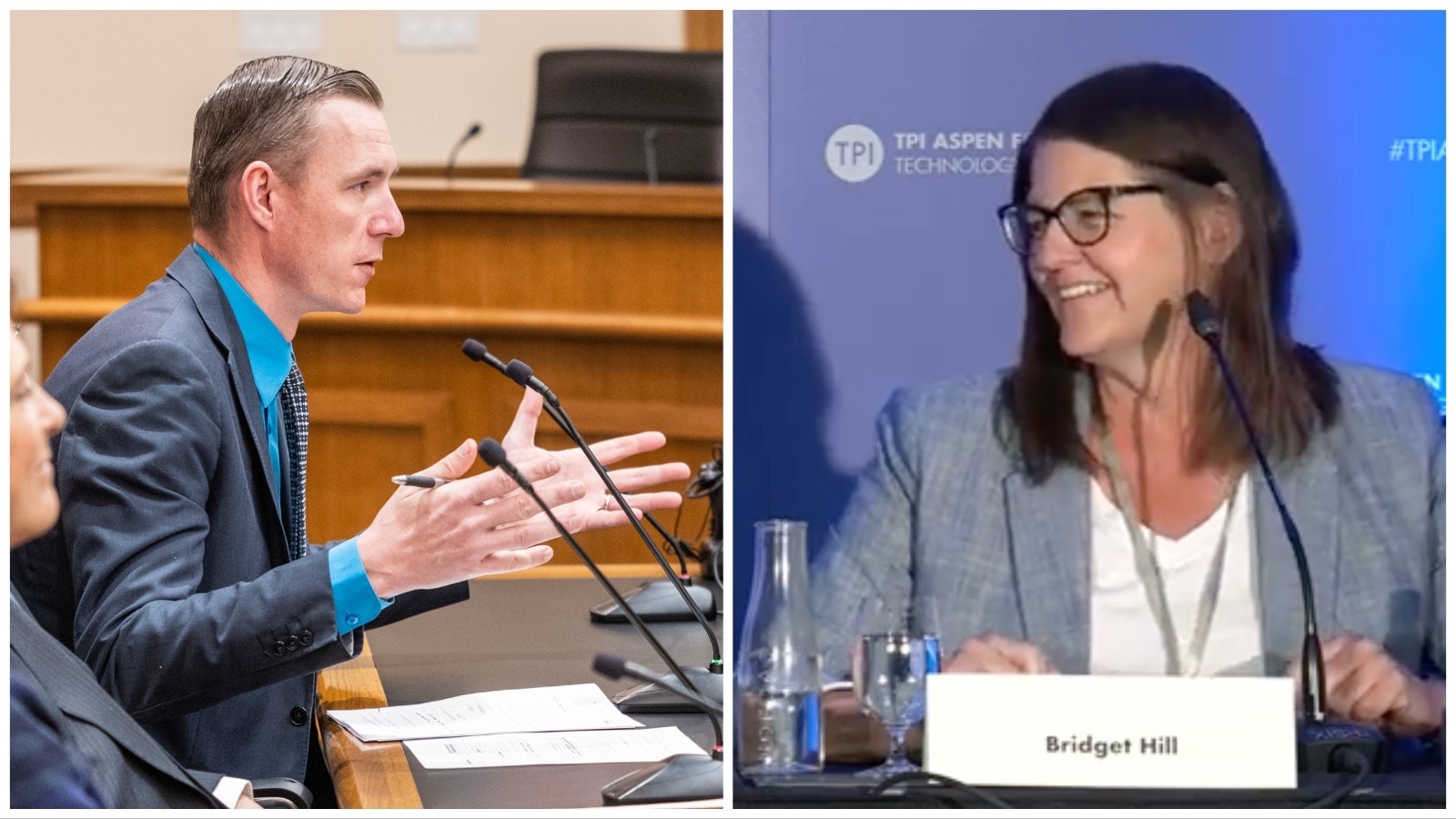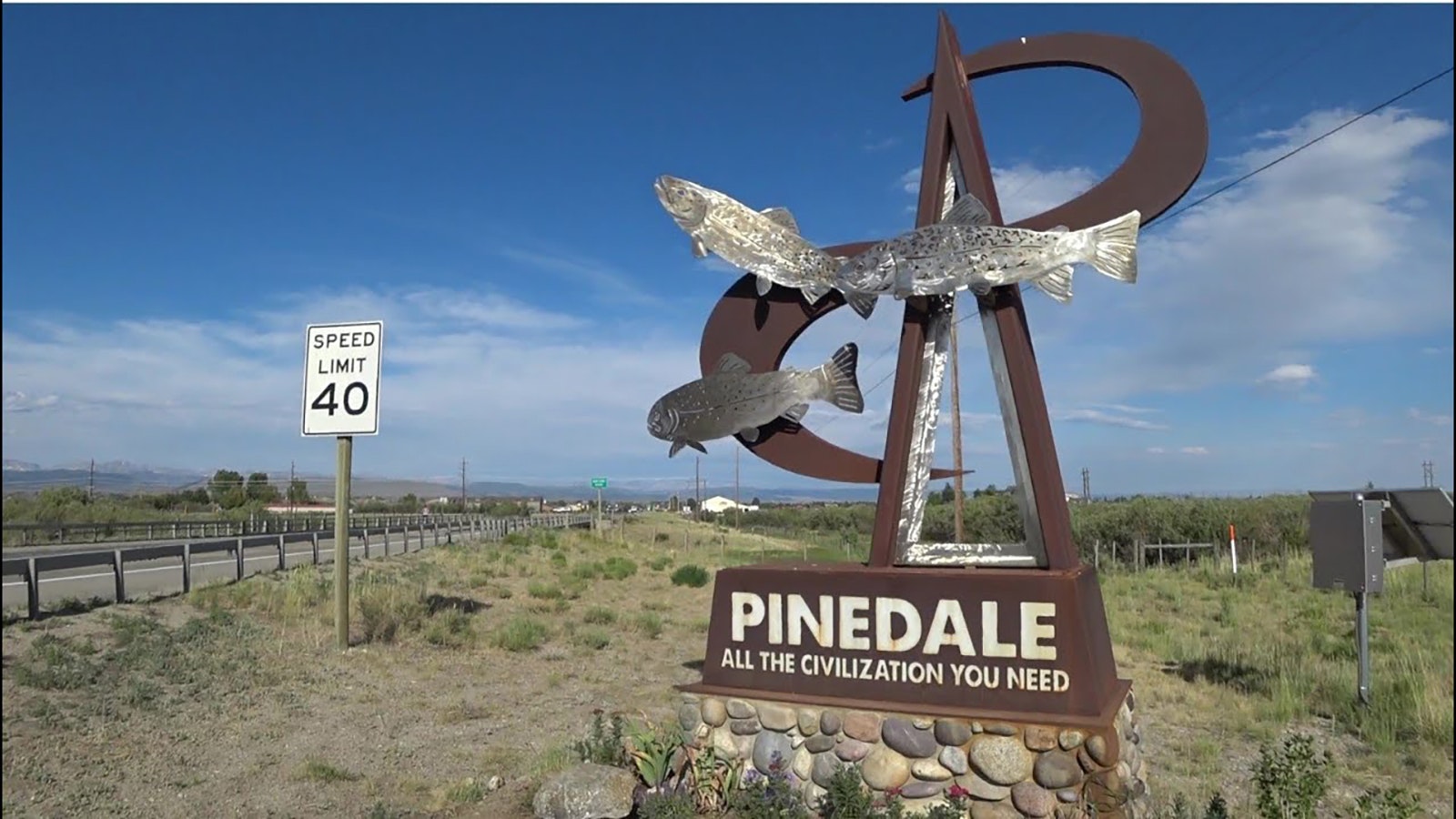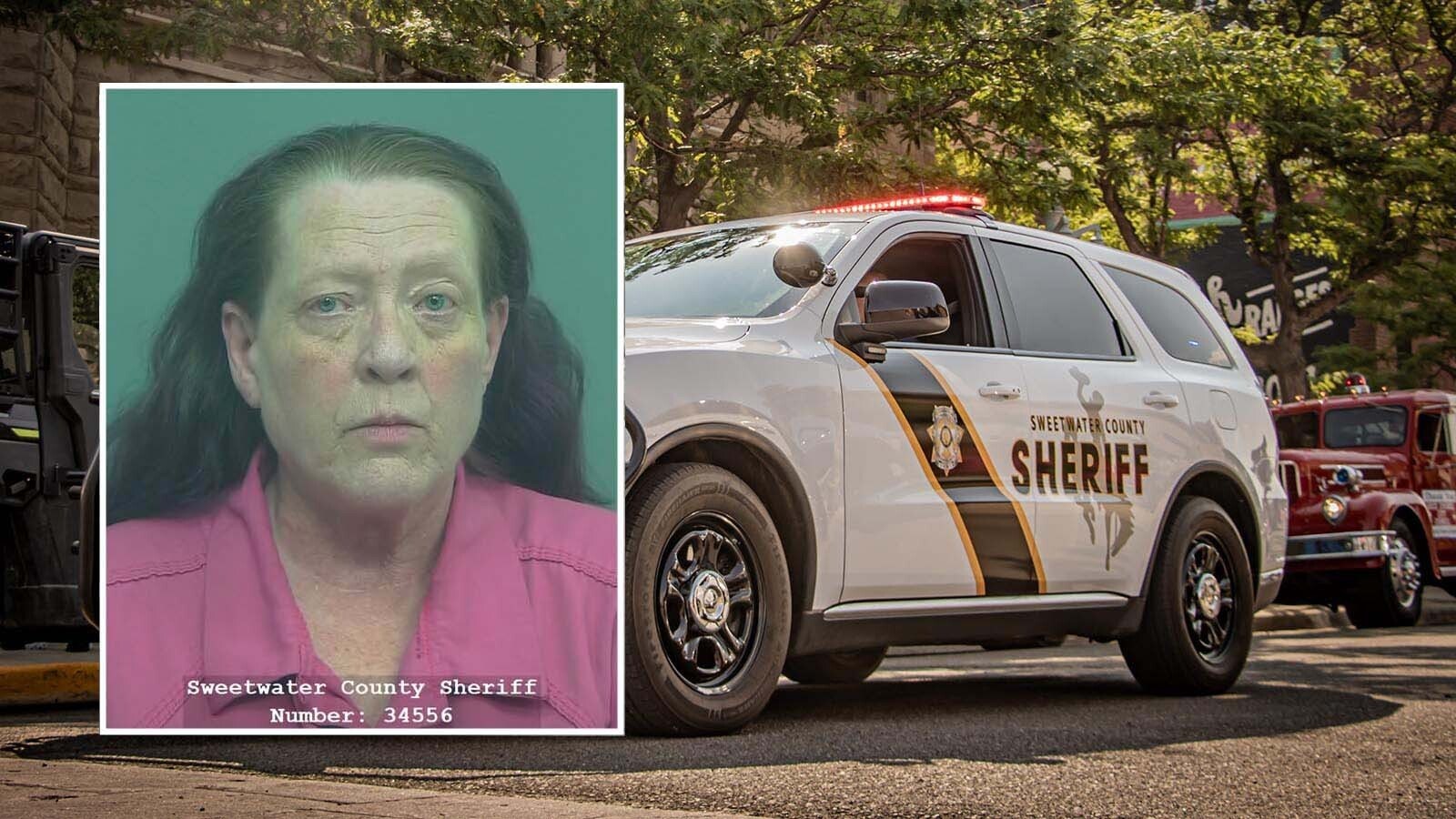Those who pass through Wyoming with large quantities of cash beware — the state can confiscate cash linked to drug marketing that might be legal elsewhere, but is illegal here.
Wyoming Supreme Court Justice Keith Kautz penned a Thursday opinion on behalf of the high court, saying that the state can keep $75,000 found in possession of a man who was reportedly transporting the cash and marijuana as he passed through from Illinois to California. The state can keep that money because it was linked to drug transactions that would be illegal if committed in Wyoming.
The ruling also reiterates earlier case law that drug-related conspiracies people hatch elsewhere are considered crimes in Wyoming if the perpetrators took steps to further those conspiracies in the state.
Tyler Lindholm, a former state legislator and a Libertarian-minded Republican, was aghast at the ruling.
“I fail to see the public good we did for the state of Wyoming,” he said. “I’d beg the question for the (state) attorney general – what good does she think she did for Wyoming besides the fact that there’s probably an entire generation that will never set foot in Wyoming again?”
Attorney General Bridget Hill appealed the case to the Wyoming Supreme Court in March, after a district court said the state did not have the authority to keep the Illinois man’s money.
Lindholm called the state’s pursuit of the man’s assets “theft,” noting that the case files say the man was acquitted in his criminal drug-possession case.
“Dear government: stop stealing from people,” said Lindholm. “That’s what I want for Christmas – for the government to stop taking money from random people traveling through my state.”
Lindholm said that at the very least, the Legislature should rewrite its laws so that the government cannot seize people’s assets in connection with criminal activity unless there has been a criminal conviction. A finding in civil court of criminal activity should not enough for a government seizure, he added.
“Somebody’s assets being seized without a conviction – essentially that’s charging the individual’s assets with a crime and not the individual at this point. Suddenly the U.S. dollar is guilty of being owned by someone,” said Lindholm. “It’s wild.”
Hill countered, noting that Wyoming’s elected lawmakers specifically authorized her office to seize money tied to acts that violate the state’s drug laws.
That provision “appears to show the Wyoming Legislature’s policy determination that they would like me and my office to diligently pursue these civil matters,” she wrote in a Thursday email to Cowboy State Daily. “The court’s decision today affirms that we did so in accordance with the law.”
Lawmakers’ “presumed” purpose in writing that law was to deter drug trafficking in the state and on its highways, Hill added.
Arrested, But Acquitted
The case started July 29, 2020, when a Wyoming Highway Patrol trooper pulled over a rented Cadillac Escalade traveling west on Interstate 80, going 84 mph in a 75 mph zone, according to court documents filed in the appeal.
When the driver, Lorenzo Gallaga, rolled down his window to speak with the trooper, the trooper could smell raw cannabis coming from the vehicle.
Gallaga said the odor was from hemp cigarettes, but the trooper said that wasn’t it, and he was going to search the vehicle.
The trooper found marijuana joints, THC cartridges, concentrated THC, rolling papers and a suitcase containing rubber band-tied clumps of $100 bills, plus a business ledger listing dollar amounts and cannabis strains, court documents say.
However, a trial jury later acquitted Gallaga of the charge of drug possession, according to Gallaga’s appeal filing.
Gallaga told the trooper he had a medical cannabis license from California. He later testified in court that he also had a medical cannabis license in Illinois and was trying to get permitted to grow recreational marijuana in Illinois.
The trooper arrested Gallaga for drug possession and took him to the Wyoming Division of Criminal Investigation headquarters in Cheyenne. A further search of the vehicle revealed more drugs (including ecstasy), five cellphones and receipts for agricultural irrigation equipment, documents say.
The cash found totaled $75,000. A DCI agent seized it for forfeiture.
Clear And Convincing
Gallaga gave conflicting accounts of where the money came from and why he had it, at one point saying he withdrew it from his bank. When law enforcement investigated Gallaga’s assets, they found his tax statements didn’t support his lawful possession of that amount of money, the ruling says.
He said he was going to use the $75,000 to buy a legal marijuana garden in Illinois, which law enforcement agents found improbable since he was headed to California.
The law says the state can seize money that's being furnished in exchange for a drug that’s illegal in Wyoming. This is a civil procedure where the state has the burden to prove by a clear and convincing showing of evidence that it has the authority to take the money.
It costs the state less effort to prove the standard of “clear and convincing evidence” used in seizure cases than to prove the “beyond a reasonable doubt” standard of proof it must achieve in a criminal case.
Lindholm discussed the differing standards with ire.
“I don’t think Wyomingites want to legalize marijuana anytime soon. But what they do give a damn about is a man’s day in court. That man had his day in court was found not guilty,” he said. “(The seizure) is a complete abdication of morality in my opinion. This poor bastard.”
Hill countered again, noting that being able to seize assets with “clear and convincing” evidence is also authorized by state law.
Which Drug Swap?
Wyoming sued in September 2020 to keep the $75,000.
Laramie County District Court Judge Catherine Rodgers held a bench trial April 26, 2022.
She issued a written decision eight months later denying the state’s petition to seize the money and ordered the state to return the money Gallaga entirely. The judge also awarded Gallaga money for his attorney fees and costs.
She wrote that the state failed to prove Gallaga was intending to do, or did any business in Wyoming, or that the money was tied to a specific drug swap.
The Wyoming Attorney General appealed that denial to the state Supreme Court this year, and said Rodgers applied the wrong legal concepts to the case.
A Marijuana Garden Somewhere
The high court agreed with the attorney general in its Thursday ruling.
Kautz’s order references earlier case law making drug conspiracies punishable in Wyoming if perpetrators advanced any parts of those conspiracies in Wyoming.
This is true even if no one proves in court who all the co-conspirators were, the order says.
The co-conspirators in this case were people chatting with Gallaga on his phones: “Steve, Daryl Daniel, and other ‘dudes,’” the order says. But that is notwithstanding.
“Mr. Gallaga committed an overt act in furtherance of the drug conspiracy by driving through Wyoming with the currency,” the order says. “The government is not required to show the proceeds of drug trafficking ‘came from any particular drug transaction’… to justify (seizing the money).”
Gallaga admitted in court that he was going to use the $75,000 to buy a marijuana garden in Illinois. Growing marijuana is illegal in Wyoming, so his money was subject to government seizure, the order says.
In Your Briefcase
Beyond the civil court’s finding that Gallaga was involved in a drug conspiracy, the high court’s order says the government can take briefcases full of cash if the owner can’t show he got it lawfully.
“A large quantity of currency may be subject to forfeiture if the evidence shows the owner lacked legitimate income to account for it,” says the order.
The high court reversed Judge Rodgers’ decision and sent the case back to her court for a new decision giving the state the $75,000.
Clair McFarland can be reached at clair@cowboystatedaily.com.





